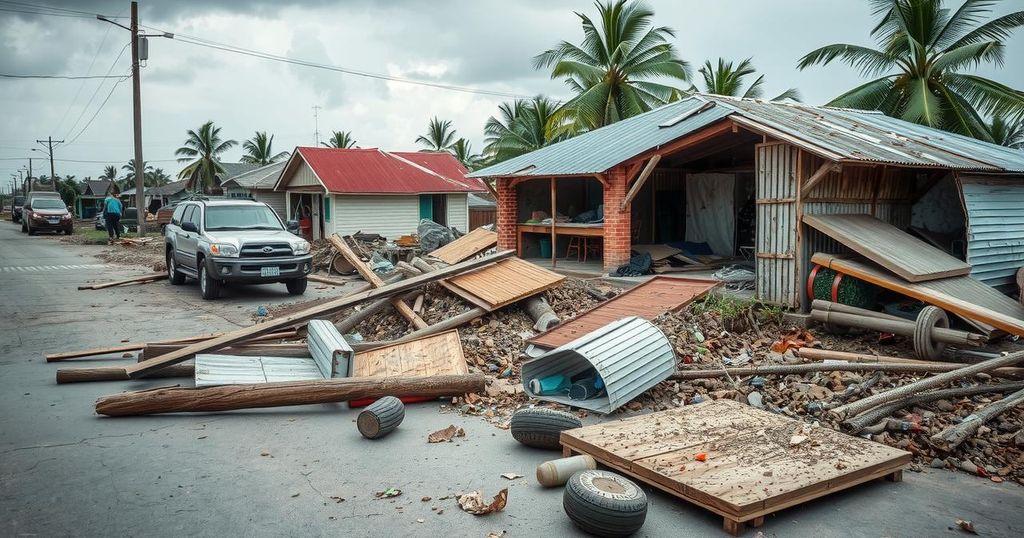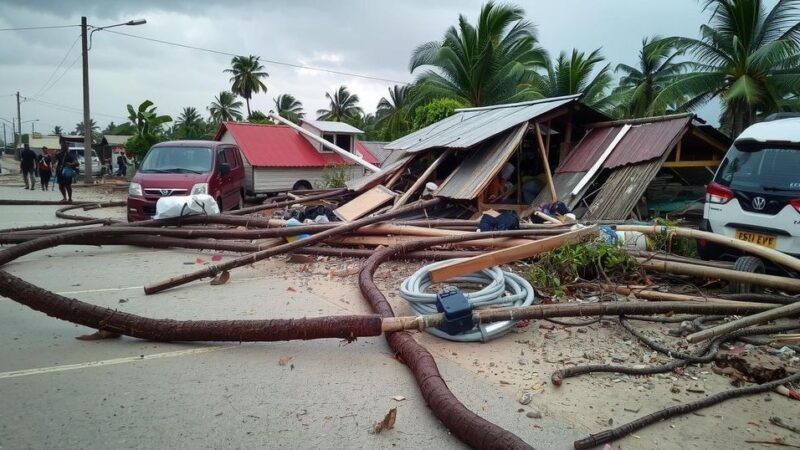The death toll from Cyclone Chido in Mozambique has risen to 45, impacting Cabo Delgado and surrounding provinces, resulting in injuries, destruction of homes, and a wide-reaching humanitarian crisis affecting over 181,000 people.
The death toll from Cyclone Chido in Mozambique has increased to 45, following the National Institute of Risk and Disaster Management’s latest report. Initially reported at 34 fatalities, the updated figures indicated that 38 individuals perished in Cabo Delgado province, four in Nampula province, and three in Niassa province, with one person still unaccounted for. The cyclone, which struck on December 15, 2024, resulted in nearly 500 injuries and significant destruction, including the total destruction of approximately 24,000 homes.
Cyclone Chido made landfall in northern Mozambique, particularly impacting the Cabo Delgado province. This region, already susceptible to cyclonic activity due to its geographical location, has also been facing challenges stemming from conflict and underdevelopment. The cyclone’s winds reached speeds of 260 kilometers (160 miles) per hour, accompanied by heavy rainfall that exacerbated the situation for the already vulnerable population. The aftermath of the cyclone saw severe humanitarian impacts, with over 181,000 individuals affected by the storm.
In summary, Cyclone Chido has caused extensive loss of life and damage in Mozambique, reinforcing the challenges faced by the region due to its susceptibility to natural disasters and socio-economic difficulties. The increased death toll underscores the urgency of humanitarian responses to alleviate the devastation and support recovery efforts in the wake of the disaster.
Original Source: www.seychellesnewsagency.com






